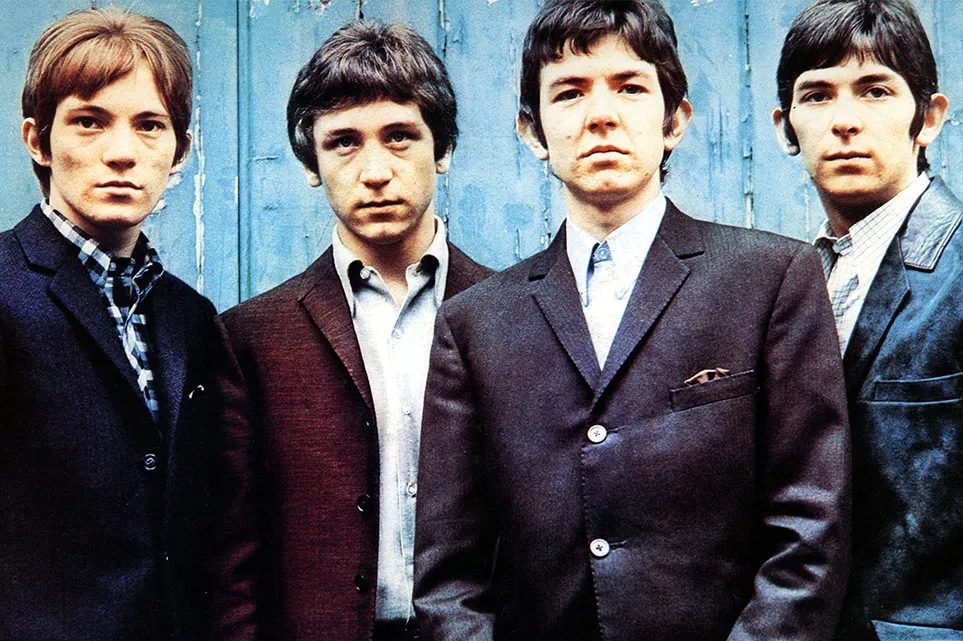I must confess, I often forget Rolling Stone magazine still exists. Once the zeitgeist-surfing Holy Writ of American counter-culture, it hosted the pioneering writers of the boomer generation: Tom Wolfe, Lester Bangs, P.J. O’Rourke, Hunter S. Thompson. Even as recently as 2020 the magazine boasted accomplished journalists such as Matt Taibbi. But over five decades, the magazine withdrew into the Establishment, just as their boomer readers did. And every now and then the Rolling Stone’s pale cadaver makes a misjudged groaning gasp for life, if only to remind us it’s not quite dead.
The rag mustered one such gasp this weekend. Oliver Anthony, a blue-collar mountain man, went from Appalachian nobody to chart-topping national treasure in no-seconds-flat — or, to be precise, forty-eight hours. A stirring video of him singing his raw original tune “Rich Men North of Richmond” — that decries the powers that be in DC, elite pedophiles and the plight of ordinary working Americans — has resonated like a national guitar with music-loving Americans starved for something authentic.
The working-class factory-worker sings “Republicans and Democrats, Lord I swear they’re all just full of crap” on his song “Doggonit,” like a character from Hillbilly Elegy making a desperate howl at the flyover sky. Seven years on from 2016, the Rust Belt is still rusting, forgotten by establishment and populist politicians alike. And that desperation has found a voice. Four of Anthony’s songs are in the iTunes top ten, including all the top three. The counterculture has a fresh face — and it wears a shaggy red beard.
Honest and considered coverage by cultural critics could have drawn a line from Oliver Anthony back to Bruce, Bob, Woody Guthrie and Hank Williams, to Steinbeck and Twain. They could have picked up on the timeless presence of the young singer, whose lyrics have as much gravel and grit as his voice, or his charm and innocence as he thumbs his way through social media that jars with a Blue Ridge Mountain life otherwise unmarked by modernity.
This is a big story in music. The biggest maybe since rapper Bryson Gray knocked Adele off the iTunes top spot in October 2021 with “Let’s Go Brandon.” Gray’s story was largely ignored by the music press, completely so by Rolling Stone. An unknown rapper beats the biggest-selling artist of the twenty-first century to number one? Nothing to see here. Why the crickets? Well, it didn’t help that Gray was an unapologetic conservative “punching up,” as they say, at the president. And Rolling Stone magazine is now, remember, the Establishment. It is the mainstream. It is legacy media. And it has a narrative to protect.
Two years on, Rolling Stone has taken a different tack. Instead of ignoring genuinely countercultural stories, their journalists reframe them. They pitch them to the world with backhanded degradation. For Anthony the magazine went with the headline “Right Wing Influencers Just Found Their Favorite New Country Song,” opting to demean his success by making their story about his listeners. Half the country are deplorables, lest we forget.
Rolling Stone’s coverage of Anthony, however, is not half as embarrassing as how it dealt with the indie box-office smash Sound of Freedom. The true story of Tim Ballard taking down pedophile rings grossed $172 million on a $14.5 million budget. The smash hit filled theaters from coast to coast and beat Indiana Jones at the box office on the Fourth of July. When I saw it, the film garnered a round of applause and standing ovation.
Yet Rolling Stone, as if hoping to cement the suggestion that they are Establishment shills, opted for the headlines “’Sound of Freedom’: Box Office Triumph for QAnon Believers” and “‘Sound Of Freedom’ Is a Superhero Movie for Dads With Brainworms.” Subhead: “The QAnon-tinged thriller about child trafficking is designed to appeal to the conscience of a conspiracy-addled boomer.” A truly countercultural publication would have weighed the merits of fairly covering a movie about the sexual exploitation of children, two million of whom are being trafficked. Not Rolling Stone.
For Sound of Freedom as with Oliver Anthony, Rolling Stone has made noticeable editorial decisions that would be deeply worrying if it was still a relevant magazine. Instead of having the courage to offer its own cultural critiques, it instead looked at who was enjoying the art —and denigrated it accordingly.
Back in the heady days of 2013, before politics was the only lens through which to view the world, I was interviewed with my old band Mumford & Sons for a Rolling Stone cover piece. Brian Hiatt was less interested in our politics than he was our penises, which he asked me about. I’m not sure in what industry that would be acceptable, other than perhaps pornography. Or maybe he was making a pass at me which I simply misread. If things were tacky then… well, they’re a whole lot worse now.
Frank Zappa once said, “Most rock journalism is people who can’t write, interviewing people who can’t talk, for people who can’t read.” I think his maxim could be updated for Rolling Stone in 2023, who publish people who can’t write, shilling for the Establishment, in articles that won’t be read at all. Rolling Stone: boomer and bust.





















